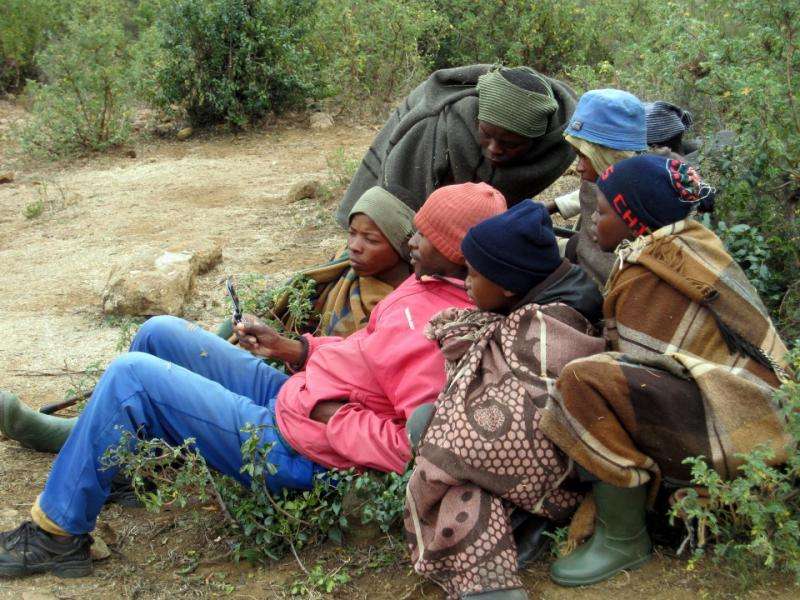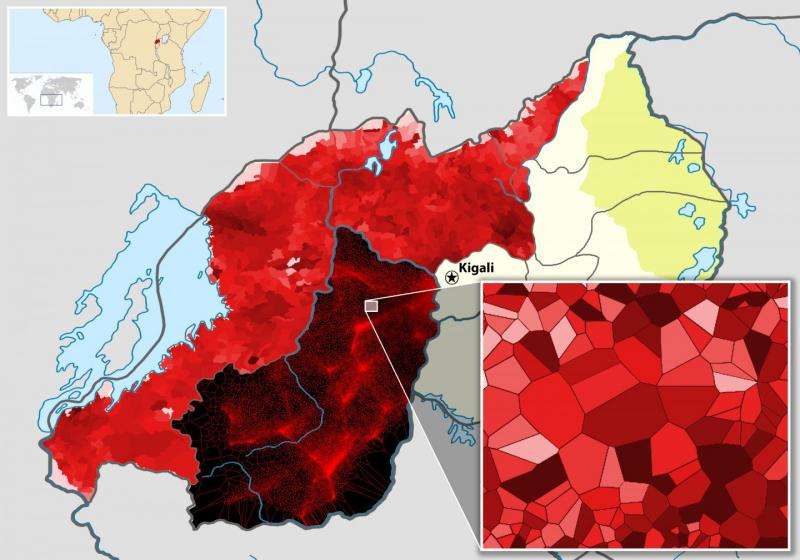November 27, 2015 report
Mobile phone usage used to track economic status in Rwanda

(Tech Xplore)—A trio of researchers has used metadata from mobile phone users in Rwanda to predict economic status for populations in that country. In their paper published in the journal Science, Joshua Blumenstock and Gabriel Cadamuro with the University of Washington and Robert On with the University of California, describe how their study worked, how accurate it was and how other similar types of efforts might be used to help policymakers track poverty levels in a given area.
It is a well known fact that when someone uses a mobile phone, in addition to speaking with someone else, or sending text messages, they are also transmitting a lot of other information as well, such as their GPS coordinates, travel history, data use, etc. How that information is or has been used has been a hot topic of discussion among users, phone companies, governments and others. In this new effort, the research trio has shown that such data can also be used as a means of gauging the economic level of phone users and using that information to create maps of economic prosperity levels for groups throughout an entire country.
The researchers report that they chose to study Rwanda because prior research has shown that current economic indicators are generally thought to be unreliable there, and because mobile phone usage in that country is very high—up to 70 percent of the population uses them. To conduct the study, they worked with the phone carrier who provided service to the area—the carrier provided the team with metadata, which they put into an anonymized database. Next, they conducted a follow-up phone survey where they queried 856 mobile phone subscribers regarding their economic status and the sorts of things they owned. Finally, the team combined the data from the database with the information from the survey to build a computer model that created maps that showed wealth distribution geographically. Once the model was up and running, the team tested its accuracy by comparing it with census data, and found a correlation of approximation of 90 percent.
The researchers suggest that their approach might be a viable alternative to current methods of economic mapping in developing countries, because it costs much less than other methods, and appears to very nearly equally reliable.

More information: J. Blumenstock et al. Predicting poverty and wealth from mobile phone metadata, Science (2015). DOI: 10.1126/science.aac4420
ABSTRACT
Accurate and timely estimates of population characteristics are a critical input to social and economic research and policy. In industrialized economies, novel sources of data are enabling new approaches to demographic profiling, but in developing countries, fewer sources of big data exist. We show that an individual's past history of mobile phone use can be used to infer his or her socioeconomic status. Furthermore, we demonstrate that the predicted attributes of millions of individuals can, in turn, accurately reconstruct the distribution of wealth of an entire nation or to infer the asset distribution of microregions composed of just a few households. In resource-constrained environments where censuses and household surveys are rare, this approach creates an option for gathering localized and timely information at a fraction of the cost of traditional methods.
© 2015 Tech Xplore




















